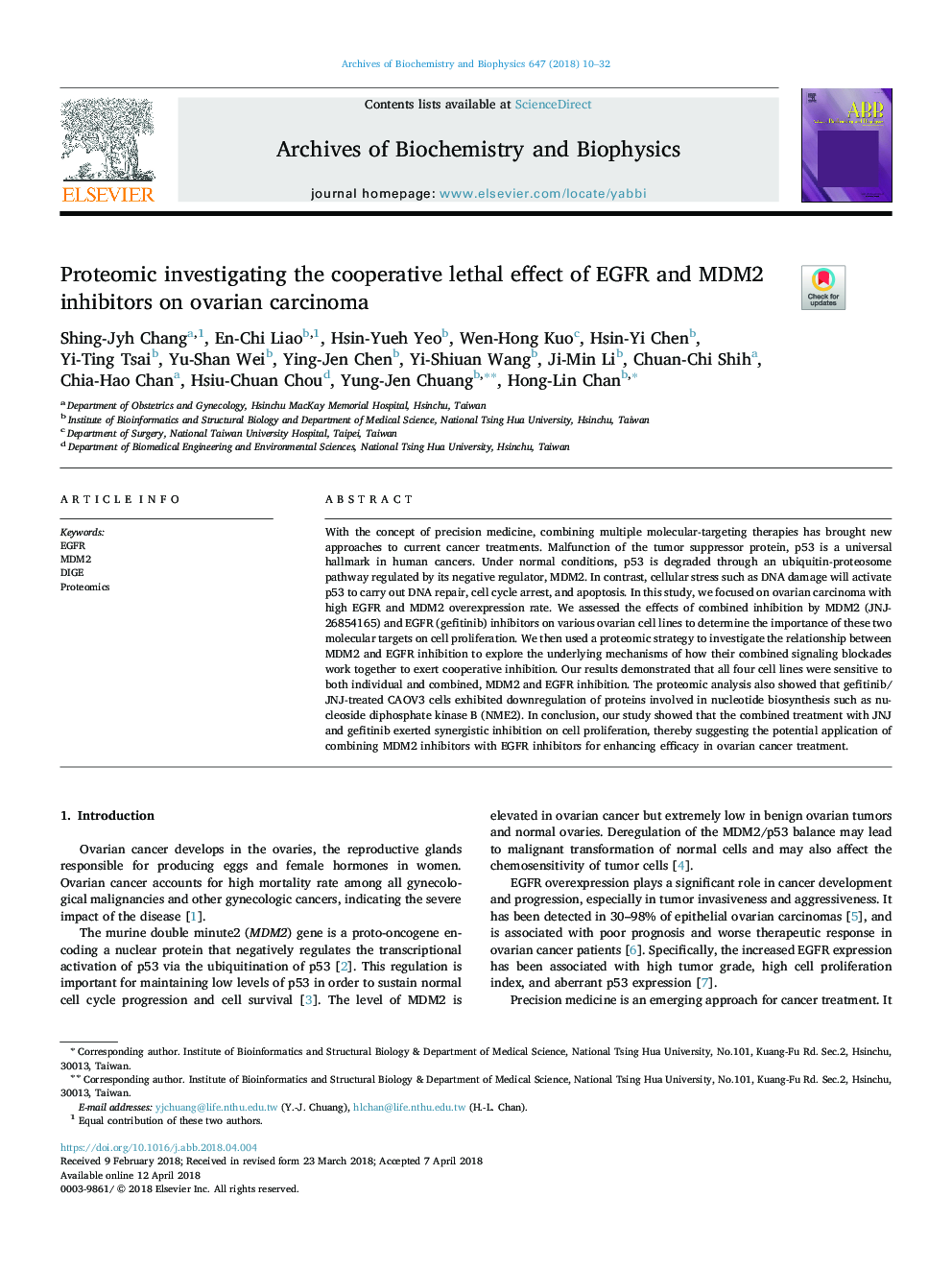| Article ID | Journal | Published Year | Pages | File Type |
|---|---|---|---|---|
| 8288570 | Archives of Biochemistry and Biophysics | 2018 | 23 Pages |
Abstract
With the concept of precision medicine, combining multiple molecular-targeting therapies has brought new approaches to current cancer treatments. Malfunction of the tumor suppressor protein, p53 is a universal hallmark in human cancers. Under normal conditions, p53 is degraded through an ubiquitin-proteosome pathway regulated by its negative regulator, MDM2. In contrast, cellular stress such as DNA damage will activate p53 to carry out DNA repair, cell cycle arrest, and apoptosis. In this study, we focused on ovarian carcinoma with high EGFR and MDM2 overexpression rate. We assessed the effects of combined inhibition by MDM2 (JNJ-26854165) and EGFR (gefitinib) inhibitors on various ovarian cell lines to determine the importance of these two molecular targets on cell proliferation. We then used a proteomic strategy to investigate the relationship between MDM2 and EGFR inhibition to explore the underlying mechanisms of how their combined signaling blockades work together to exert cooperative inhibition. Our results demonstrated that all four cell lines were sensitive to both individual and combined, MDM2 and EGFR inhibition. The proteomic analysis also showed that gefitinib/JNJ-treated CAOV3 cells exhibited downregulation of proteins involved in nucleotide biosynthesis such as nucleoside diphosphate kinase B (NME2). In conclusion, our study showed that the combined treatment with JNJ and gefitinib exerted synergistic inhibition on cell proliferation, thereby suggesting the potential application of combining MDM2 inhibitors with EGFR inhibitors for enhancing efficacy in ovarian cancer treatment.
Keywords
Related Topics
Life Sciences
Biochemistry, Genetics and Molecular Biology
Biochemistry
Authors
Shing-Jyh Chang, En-Chi Liao, Hsin-Yueh Yeo, Wen-Hung Kuo, Hsin-Yi Chen, Yi-Ting Tsai, Yu-Shan Wei, Ying-Jen Chen, Yi-Shiuan Wang, Ji-Min Li, Chuan-Chi Shih, Chia-Hao Chan, Zih-Yin Lai, Hsiu-Chuan Chou, Yung-Jen Chuang, Hong-Lin Chan,
